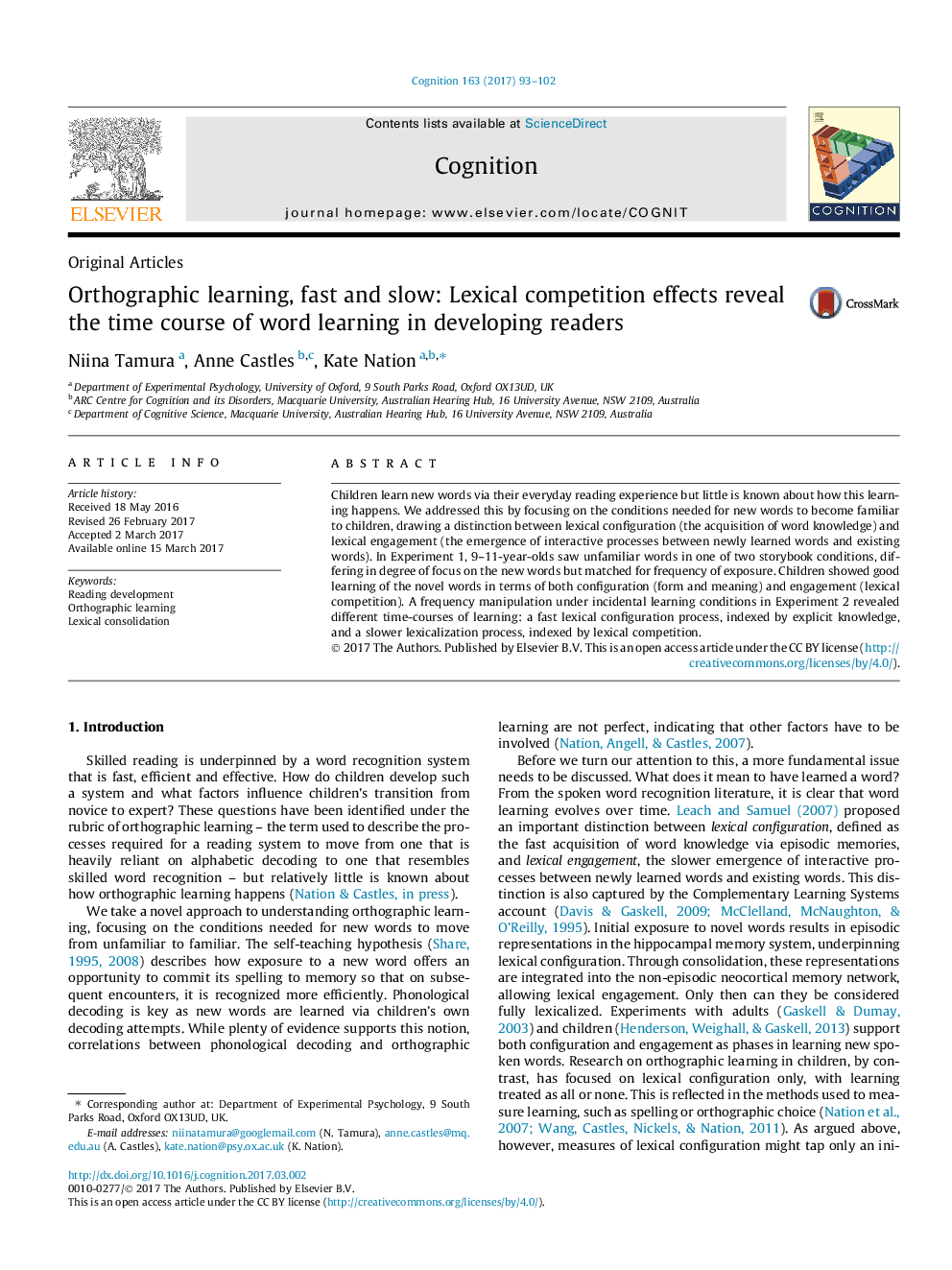| Article ID | Journal | Published Year | Pages | File Type |
|---|---|---|---|---|
| 5041586 | Cognition | 2017 | 10 Pages |
â¢Children learned new words incidentally via reading experience.â¢Children showed good knowledge of the form of new words after four exposures.â¢More exposures were needed before newly learned words competed with existing words.â¢Evidence for configuration and engagement as two phases in word learning.
Children learn new words via their everyday reading experience but little is known about how this learning happens. We addressed this by focusing on the conditions needed for new words to become familiar to children, drawing a distinction between lexical configuration (the acquisition of word knowledge) and lexical engagement (the emergence of interactive processes between newly learned words and existing words). In Experiment 1, 9-11-year-olds saw unfamiliar words in one of two storybook conditions, differing in degree of focus on the new words but matched for frequency of exposure. Children showed good learning of the novel words in terms of both configuration (form and meaning) and engagement (lexical competition). A frequency manipulation under incidental learning conditions in Experiment 2 revealed different time-courses of learning: a fast lexical configuration process, indexed by explicit knowledge, and a slower lexicalization process, indexed by lexical competition.
